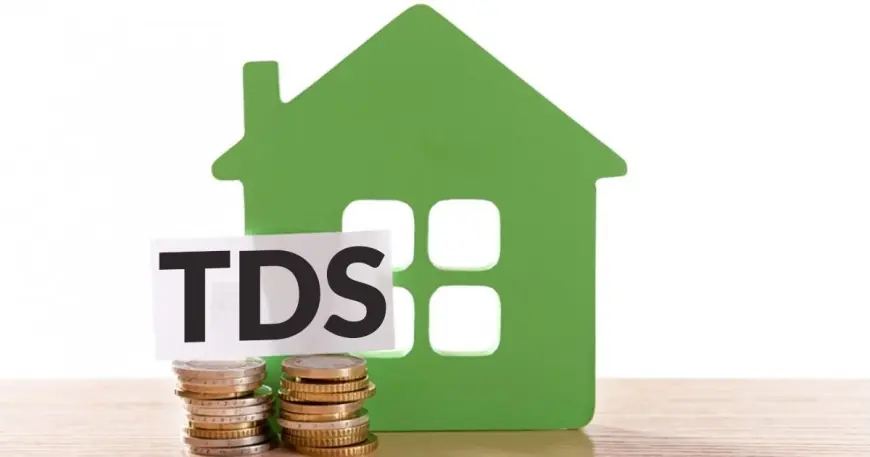Understanding TDS on Rent: A Complete Guide for Landlords and Tenants
Learn everything about TDS on rent, including who pays it, applicable rates, and how landlords and tenants can comply with tax regulations in this complete guide.

Tax Deducted at Source (TDS) is an essential aspect of the Indian tax system that ensures tax collection at the very source of income. One significant area where TDS applies is rent payments. Whether you’re a landlord or a tenant, understanding how TDS on rent works can save you from potential legal hassles and ensure compliance. This guide provides a comprehensive overview of TDS on rent, including when and how to pay TDS on rent.
What is TDS on Rent?
TDS on rent refers to the tax deducted by the payer (tenant) before making rental payments to the recipient (landlord). The Income Tax Act, under Section 194I, mandates TDS deductions on certain types of rents paid to landlords.
When Does TDS on Rent Apply?
TDS on rent applies to:
-
Residential properties
-
Commercial properties
-
Plant and machinery
-
Equipment, furniture, or fittings
Here are the key thresholds and rates:
-
Individuals or HUFs: If the rent exceeds Rs. 50,000 per month, the tenant must deduct TDS at 5% under Section 194IB.
-
Others (companies, firms, etc.): TDS is deducted at 10% for rent exceeding Rs. 2,40,000 annually under Section 194I.
It’s important to note that no TDS is required if the rent is below these thresholds.
Responsibilities of Landlords and Tenants
For Tenants:
-
Deduct TDS: Deduct the applicable TDS before paying rent.
-
Deposit TDS: Deposit the deducted TDS with the government within the prescribed timeline.
-
File TDS Returns: File Form 26QC for TDS on rent under Section 194IB within 30 days from the end of the month in which TDS was deducted.
-
Issue TDS Certificate: Provide Form 16C to the landlord as proof of TDS deduction.
For Landlords:
-
Provide PAN: Ensure you share your PAN with the tenant. Failure to do so results in TDS being deducted at 20% instead of the applicable rate.
-
Report Income: Include rental income in your annual tax returns.
-
Maintain Records: Keep records of rent agreements and Form 16C for future reference.
How to Pay TDS on Rent
Paying TDS on rent involves the following steps:
-
Generate Form 26QC:
-
Visit the TDS e-Payment portal.
-
Select “Form 26QC” and provide details like PAN of both tenant and landlord, property address, rental amount, and TDS amount.
-
Make the Payment:
-
Choose your preferred bank for payment.
-
Complete the payment using net banking or other accepted methods.
-
Issue Form 16C:
-
After payment, download Form 16C and share it with the landlord as proof of TDS deduction.
If you’re unsure about any step, consulting a tax consultant in Gurgaon or other locations can make the process seamless. Companies like JJ Tax specialize in assisting clients with such tax-related matters.
Advantages of Paying TDS on Rent
-
Compliance: Ensures adherence to tax laws and avoids penalties.
-
Transparency: Both landlords and tenants maintain clear financial records.
-
Ease of Filing Returns: Proper TDS deductions simplify the process of filing annual income tax returns for landlords.
Penalties for Non-Compliance
Non-compliance with TDS provisions can lead to severe consequences:
-
Interest on Late Payment: Interest at 1% per month for delay in deduction and 1.5% for delay in payment.
-
Penalty: A penalty equal to the TDS amount may be levied under Section 271C.
-
Late Filing Fee: A late filing fee of Rs. 200 per day under Section 234E for delayed Form 26QC submission.
Common Challenges in Paying TDS on Rent
-
Lack of Awareness: Many tenants are unaware of their obligation to deduct and deposit TDS.
-
Incorrect PAN Details: Providing incorrect PAN can result in errors and penalties.
-
Missed Deadlines: Delays in filing Form 26QC or issuing Form 16C can lead to fines.
Why Consult Experts for TDS on Rent?
Handling TDS on rent requires attention to detail and strict adherence to timelines. Seeking help from experts, such as a tax consultant in Gurgaon, can save time and ensure accuracy. Professionals at JJ Tax offer personalized guidance, from understanding the rules to helping you pay TDS on rent accurately and on time.
Conclusion
Understanding and complying with TDS on rent is vital for both landlords and tenants. It not only ensures adherence to tax laws but also fosters a transparent rental process. By knowing how to pay TDS on rent and keeping records up-to-date, you can avoid unnecessary penalties and complications.
If you’re looking for expert advice or assistance, reach out to trusted professionals like JJ Tax. With their expertise, handling TDS on rent becomes a hassle-free experience. Stay informed, stay compliant, and ensure a smooth rental transaction every time.
What's Your Reaction?
 Like
0
Like
0
 Dislike
0
Dislike
0
 Love
0
Love
0
 Funny
0
Funny
0
 Angry
0
Angry
0
 Sad
0
Sad
0
 Wow
0
Wow
0










































